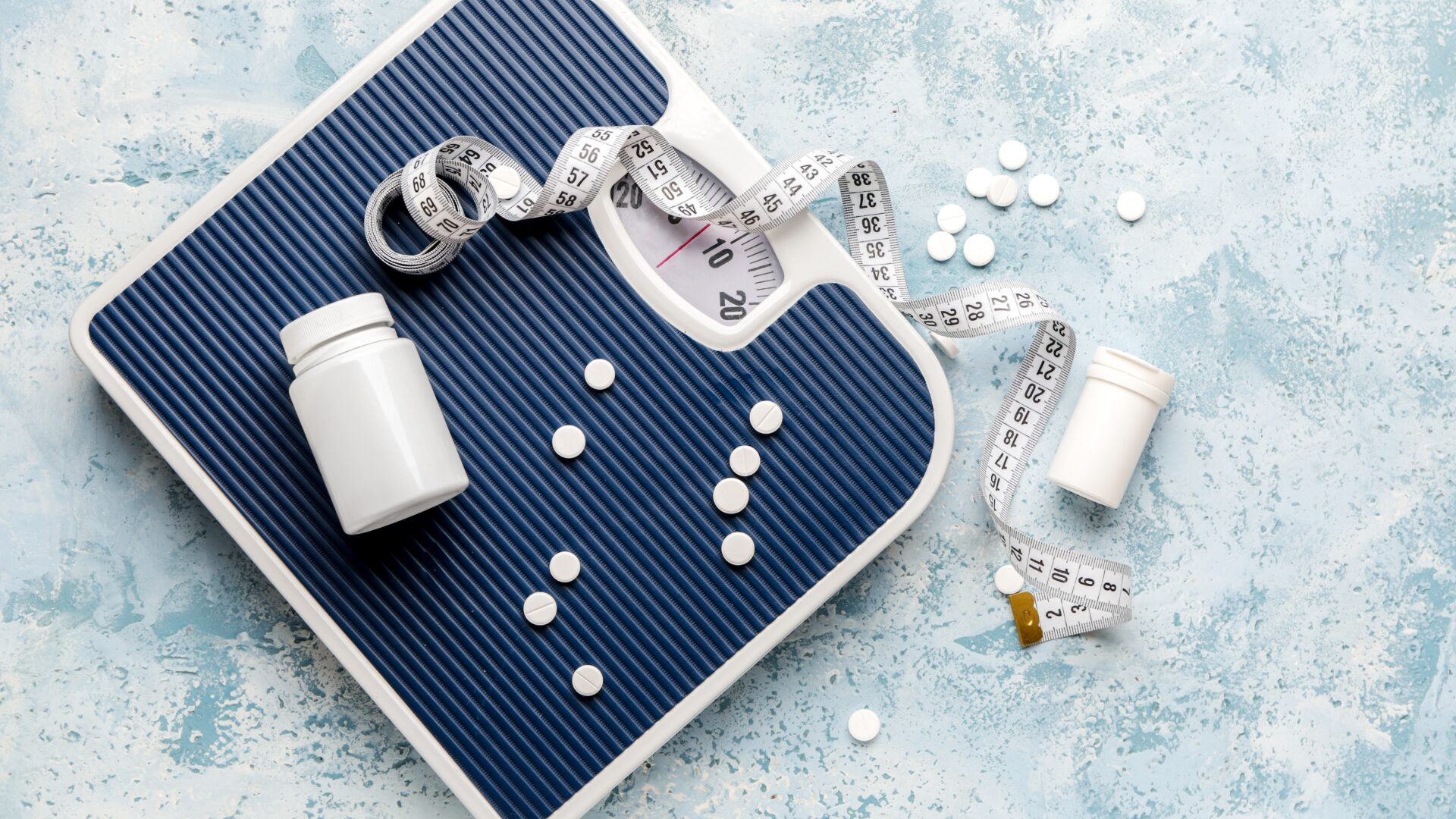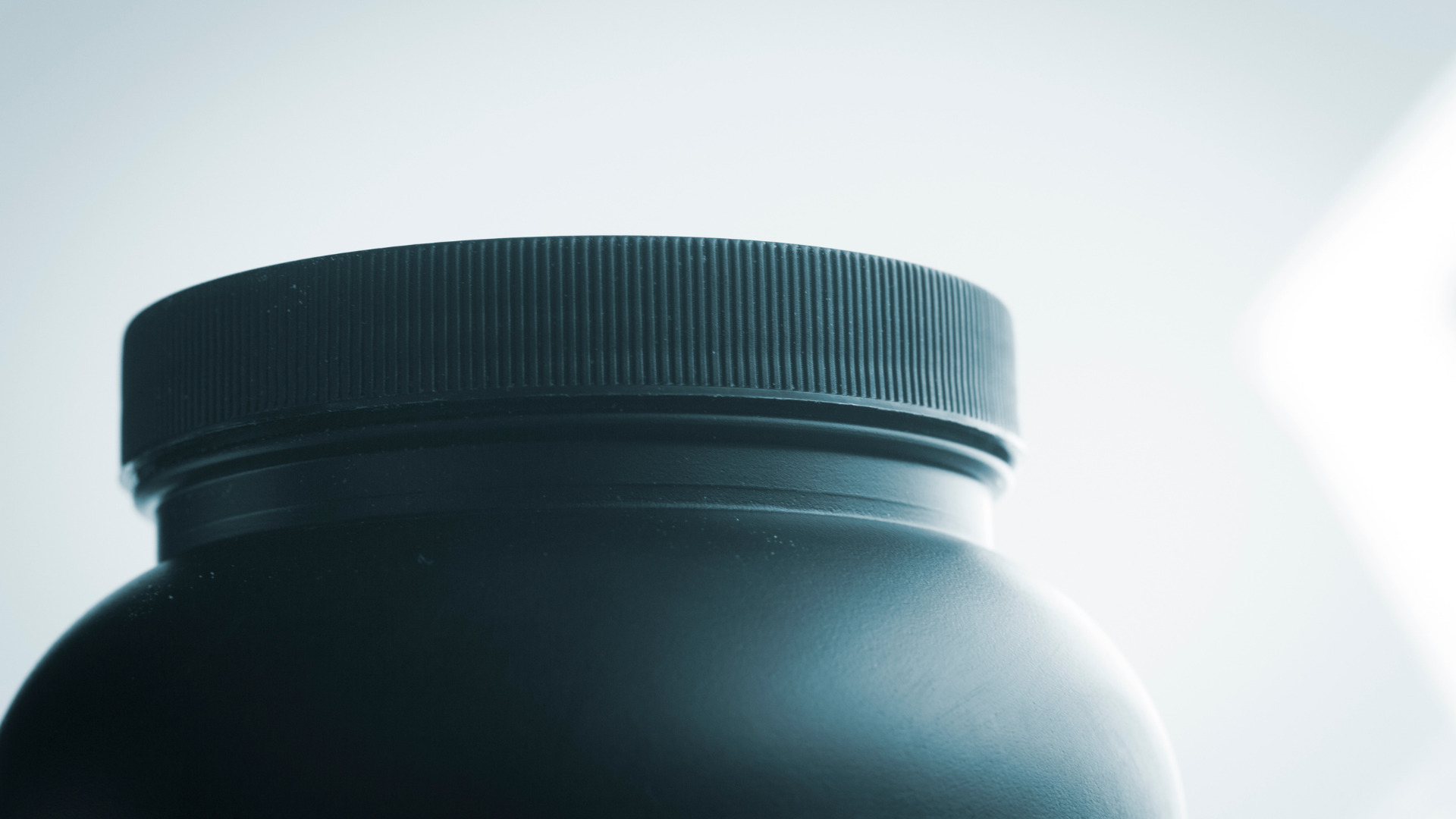B12 shots for weight loss, obesity, and body fat have become increasingly popular as people seek effective solutions to achieve their weight goals. Many individuals with obesity are incorporating B12 shots into their weight loss plans, hoping to experience positive results based on medical advice and several studies. Understanding the role of B12 intake and its link to the body’s metabolism and obesity is crucial when considering this type of supplementation.
New Year’s Resolutions: Self-Care Ideas for Wellness & Growth
Self-care ideas for your New Year’s resolutions are not just another item on a to-do list; they’re the essential ingredients for a fulfilling life of wellness, good housekeeping, and gratitude journaling. It’s about setting realistic wellness goals, finding simple ways to incorporate self-care and gratitude journaling into your daily routine, and reaping the mental health benefits that come with it.
Benefits of Dry Brushing: Unlocking the Secrets for Healthy Skin
Dry brushing is a simple massage technique that has been used for centuries to promote healthy skin and overall well-being. This technique involves exfoliation of the skin using a brush, followed by the application of a moisturizer or lotion. By using a dry brush on the skin, you can exfoliate dead cells, stimulate circulation, support detoxification, and enhance the effectiveness of your moisturizer and massage. Unlike other skincare products or treatments, dry brushing is a convenient way to increase circulation and prevent ingrown hairs in the comfort of your own home. It’s a great addition to your self-care routine.
Vitamins for a Bigger Butt: Boost Glute Growth with Nutrition
Looking to enhance your curves and achieve a fuller, more voluptuous derriere? Try incorporating a glute workout into your exercise routine. The glute bridge is an effective exercise for targeting and toning the booty.
Oura Ring: Where to Buy for Fitness, Sleep & Health
The Oura Ring is a popular wearable device that tracks sleep, activity, overall health, and natural cycles. It is a site for monitoring your body’s rhythms and can be used as a kit to understand your finger’s health. If you’re interested in purchasing an Oura Ring, there are several options available to you.
Best Supplements for Muscle Growth – 2023’s Top Gainers!
Looking to maximize your muscle growth? The right sports nutrition supplements can be an essential part of your fitness journey, especially when combined with a well-designed exercise program for muscle building. Additionally, incorporating testosterone boosters into your routine can further enhance your results. Not only do workout supplements support muscle synthesis, but they also provide a range of benefits that can enhance your performance and results.
Symptoms of Stress in Women: Common Signs & Effects
Symptoms of Stress in Women: Common Signs & Effects Imagine this: Many women are juggling multiple roles in life – career, family, relationships, and personal aspirations. People in various areas, for example, are facing similar challenges. It can feel like a never-ending balancing act. But amidst all the chaos, there’s one thing that often goes unnoticed – stress. Stress can have a significant effect on people, increasing the risk of heart attack. Stress is not just a thing thrown around casually; it’s a real and significant effect to the various situations and challenges women face every day. Participants experience this effect. From emotional changes to physical signs, stress can have a significant effect on many women throughout the day. We’ll delve into common areas where stress can manifest itself. Understanding these symptoms is crucial for men’s overall well-being because recognizing and addressing them is essential for Men’s Day. Defining Stress in Women Stress levels can vary among women due to different stressors and individual responses. Many women experience stress at some point in their lives, whether it’s from work, relationships, or other factors. Chronic stress in women can have significant effects on their health. It has been linked to an increased risk of developing high blood pressure and mental health issues such as anxiety and depression. Women may also experience hormonal changes during their menstrual cycles that can affect their stress response and emotions. Hormones like cortisol, known as the “stress hormone,” can fluctuate throughout the month, impacting how women perceive and react to stressful situations. These hormonal fluctuations can sometimes make women more susceptible to experiencing heightened stress symptoms during certain times of the month. It’s important for women to recognize the symptoms of stress so they can take steps to manage it effectively. Some common symptoms include headaches, fatigue, difficulty sleeping, irritability, changes in appetite, and difficulty concentrating. If left unaddressed, chronic stress can lead to more severe health problems such as heart disease. Recognizing Signs of Stress Physical Symptoms: Listen to Your Body Stress can take a toll on our bodies, and it often shows up in various physical symptoms. Have you ever noticed your heart racing or your blood pressure going up when you’re feeling stressed? These are common signs that stress is affecting your body. It’s like your body is sending out an SOS signal, saying “Hey, I’m not okay!” Emotional Rollercoaster: Ride with Caution Just as stress affects us physically, it also messes with our emotions. When stress levels skyrocket, we may find ourselves feeling anxious, irritable, or overwhelmed. It’s like being on a rollercoaster ride where every twist and turn brings about a new wave of emotions. Chronic Stress: A Serious Matter While short bursts of stress are normal, chronic stress is a whole different ballgame. When we experience prolonged periods of stress without relief or relaxation, it can lead to serious health problems. Imagine carrying around a heavy backpack all day long – eventually, it starts to weigh you down and affect your overall well-being. The Mind-Body Connection: Stress and Mental Health Stress doesn’t just impact our physical health; it also takes a toll on our mental well-being. High levels of stress can contribute to the development or worsening of mental health issues such as anxiety and depression. It’s like having a storm cloud constantly hovering over your head. The Warning Signs: Pay Attention! Recognizing the signs of stress is crucial for taking care of ourselves. By paying attention to both the physical symptoms and emotional cues that our bodies send us, we can better manage our stress levels and seek support when needed. Remember, it’s important to listen to what your body is telling you – it’s trying to communicate its needs! Understanding Emotional and Cognitive Indicators Emotional and cognitive indicators are common symptoms that can provide valuable insights into their mental and emotional well-being. These indicators encompass changes in emotions, feelings, and overall mental health. By recognizing these signs, women can gain a better understanding of their stress levels and take appropriate measures to care for themselves. Changes in Emotions One of the key emotional indicators of stress in women is experiencing frequent shifts in emotions. They may find themselves feeling more irritable, anxious, or overwhelmed than usual. They might have difficulty controlling their emotions or notice an increase in mood swings. These emotional changes can be triggered by various stressors such as work pressures, relationship issues, or challenging life situations. Impact on Mental Health Stress can also significantly impact a woman’s mental health. It may lead to feelings of sadness or depression, decreased motivation or concentration levels, and even affect sleep patterns. Women experiencing high levels of stress often report racing thoughts or difficulty focusing on tasks at hand. These cognitive indicators can further exacerbate feelings of stress and make it challenging to cope with daily responsibilities. Recognizing these emotional and cognitive signs is crucial for women to identify when they are under significant stress. By acknowledging these symptoms early on, they can take proactive steps towards managing their stress levels effectively. Physical Manifestations of Stress Changes in Blood Pressure and Heart Rate When stress hits, it doesn’t just mess with our minds; it can also wreak havoc on our bodies. One of the physical symptoms of stress is changes in blood pressure and heart rate. When we’re stressed out, our heart starts pounding faster, and our blood pressure may rise. It’s like our body is revving up for a race! Health Problems Caused by Chronic Stress If stress becomes a regular part of our lives, it can lead to serious health problems. Chronic stress, which means being stressed for a long time, can increase the risk of heart attacks and other cardiovascular issues. Imagine having your body under constant strain – it’s like pushing a car to its limits without giving it a break. Impact on Cortisol Production Stress levels can have an impact on the body’s cortisol production. Cortisol is a hormone that helps regulate various
Supplements to Reduce Cortisol: Expert’s Top 5 Picks
Supplements to Reduce Cortisol: Expert’s Top 5 Picks Cortisol, the stress hormone, can wreak havoc on our overall well-being. Produced by the adrenal glands in response to stress, cortisol plays a vital role in regulating our body’s stress response and maintaining a healthy circadian rhythm. However, when cortisol levels remain consistently elevated due to chronic stress, it can lead to various health issues such as anxiety, disrupted hormonal balance, and elevated blood sugar levels. Reducing cortisol levels naturally is crucial for restoring balance and promoting optimal health. Thankfully, there are supplements available that can help lower cortisol levels and alleviate the negative effects of chronic stress. So if you’re looking to regain control over your stress levels and promote a healthier lifestyle, read on to discover how these natural remedies can make a significant difference. How do cortisol levels affect your mood? Elevated cortisol levels can have a significant impact on your mood. When our bodies experience stress, the adrenal glands release cortisol, also known as the “stress hormone.” While cortisol is important for our survival and helps us cope with stressful situations, prolonged exposure to high levels of cortisol can lead to negative changes in mood. Maintaining healthy cortisol levels is crucial for managing stress and promoting a positive mood. When we face chronic stress, such as ongoing work pressure or relationship problems, our cortisol levels may remain consistently elevated. This continuous activation of the stress response can disrupt our body’s natural balance and negatively affect our mood. High cortisol levels can cause irritability, anxiety, and even depression. It’s like having an unwanted guest overstaying their welcome at your house – it starts to take a toll on your happiness and well-being. Imagine feeling constantly on edge or experiencing frequent bouts of sadness without any apparent reason. These are some ways that elevated cortisol levels can impact your mood. Reducing cortisol levels naturally is essential for restoring emotional equilibrium. Here are some tips to help you manage stress and keep those cortisol levels in check: Practice Stress Management Techniques Engage in activities that help you relax and unwind, such as deep breathing exercises, meditation, or yoga. Find hobbies or interests that bring you joy and allow you to escape from daily stressors. Ensure you get enough sleep each night as lack of sleep can contribute to elevated cortisol levels. Maintain a Healthy Lifestyle Eat a balanced diet rich in fruits, vegetables, whole grains, lean proteins, and healthy fats. Stay physically active by incorporating regular exercise into your routine. Limit caffeine intake as it can stimulate the release of cortisol. Build Strong Support Systems Surround yourself with positive influences – friends and family who uplift you rather than drain your energy. Seek support from loved ones when facing challenging situations. Consider talking to a therapist or counselor who can provide guidance and help you develop coping strategies. Prioritize Self-Care Take time for yourself each day to engage in activities that bring you joy and relaxation. Practice self-care rituals like taking a warm bath, reading a book, or going for a walk in nature. Avoid overcommitting yourself and learn to say no when necessary. Top Supplements to Reduce Cortisol Supplementation with certain natural substances can be an effective way to reduce cortisol levels in the body. Here are some of the top supplements that can help regulate cortisol and promote a healthier stress response: Rhodiola: Rhodiola is an adaptogenic herb that has been used for centuries to combat stress and promote overall well-being. It works by modulating the release of cortisol, helping to keep levels within a healthy range. Rhodiola has also been shown to improve mood and reduce fatigue, making it a popular choice for those looking to manage stress. Ashwagandha: Ashwagandha is another powerful adaptogen that can help lower elevated cortisol levels. It has been used in traditional Ayurvedic medicine for its calming properties and ability to support the body’s stress response. Ashwagandha has been shown to reduce anxiety, improve sleep quality, and enhance overall resilience to stress. Maca: Maca root is a nutrient-dense superfood that offers numerous health benefits, including its potential to regulate cortisol levels. Maca contains adaptogenic compounds that help the body maintain balance during times of stress. By supporting the adrenal glands, maca may help prevent excessive cortisol production and promote a more balanced stress response. Theanine: Theanine is an amino acid commonly found in green tea leaves. It is known for its calming effects on the mind and body. Theanine helps promote relaxation by increasing alpha brainwave activity, which is associated with a state of calm alertness. By reducing anxiety and promoting relaxation, theanine may indirectly help lower cortisol levels. Supplementing with these natural remedies can offer several benefits when it comes to managing cortisol: Reduced cortisol levels: These supplements have been shown to help bring down elevated cortisol levels back into a healthier range. Improved mood: By regulating cortisol secretion, these supplements may help improve mood and reduce symptoms of anxiety and depression. Enhanced stress resilience: Adaptogenic supplements like rhodiola, ashwagandha, maca, and theanine can support the body’s ability to adapt to stressors, making it easier to cope with daily challenges. Better sleep quality: Lowering cortisol levels can contribute to improved sleep quality, helping you feel more rested and rejuvenated. While these supplements can be beneficial for reducing cortisol levels, it’s important to remember that they should not replace a healthy lifestyle. Regular exercise, proper nutrition, adequate sleep, and stress management techniques are all essential for maintaining balanced cortisol levels. Other natural ways to reduce your cortisol levels Exercise Regularly One effective way to regulate your cortisol levels is through regular exercise. Engaging in physical activity helps to reduce stress and promote the release of endorphins, which are natural mood boosters. Whether it’s going for a brisk walk, playing a sport, or dancing to your favorite tunes, find an activity that you enjoy and make it a part of your routine. Incorporate Stress Management Techniques Managing stress is crucial for
Low Sugar Desserts for Thanksgiving: 20 Healthy Recipes
Low Sugar Desserts for Thanksgiving: 20 Healthy Recipes Buy on Amazon Imagine this: Thanksgiving dinner is over, and you’re craving a healthy dessert to top off the feast. How about some delicious pumpkin cookies, brownies, or cupcakes? But you also want to keep your sugar intake in check, especially if you have diabetes. It’s important to be mindful of the calories in your desserts and opt for healthy dessert options that align with diabetic exchanges. Don’t worry! We’ve got you covered with a delectable array of low-sugar desserts, including vanilla ice cream, that will satisfy your sweet tooth without the guilt. These desserts are suitable for individuals with diabetes and can be easily incorporated into diabetic exchanges. Plus, they are low in calories. From mouthwatering diabetic exchanges and fruit-based desserts to creative spins on classic diabetic exchanges favorites, we’ll explore a variety of options that are both tasty and low in sugar. These recipes are perfect for those with diabetes who are looking for nutritious and delicious options. Say goodbye to traditional high-sugar dessert recipes and hello to healthier alternatives that are low in calories and suitable for diabetic exchanges. These nutritious desserts don’t compromise on flavor. Whether you’re hosting Thanksgiving dinner or attending as a guest, these dessert recipes will add a touch of sweetness to your holiday celebration without sending your blood sugar levels soaring. These dessert recipes are perfect for individuals who need to manage their blood sugar levels, as they are made with diabetic exchanges and are low in starch and calories. Additionally, these recipes prioritize nutrition without compromising on taste. Get ready for a delightful journey through the world of low-sugar dessert recipes for Thanksgiving! Discover delicious options that are suitable for diabetic exchanges and packed with nutrition. Diabetic Carrot Cake If you’re a fan of carrot cake but need a low-sugar recipe that is also low in calories, don’t worry! This carrot cake recipe is both delicious and nutritious. It is low in fat and packed with essential nutrients. You can still enjoy this classic dessert recipe without compromising your nutrition and adding unnecessary fat and calories. Moist and Flavorful Carrot Cake The key to a great carrot cake lies in its moisture, flavor, and nutrition. Traditional recipes often call for a significant amount of sugar, which can be problematic for those concerned about calories, nutrition, fat, cholesterol, and diabetes. However, there are alternative sweeteners available that can provide the desired sweetness without negatively impacting blood sugar levels or adding unnecessary calories, sodium, cholesterol, and nutrition. One option for improving nutrition is to use natural sweeteners like stevia or monk fruit extract. These sweeteners can help reduce calories and fat intake while still providing a satisfying taste. These alternatives have minimal impact on blood sugar and can be used in place of refined sugars in baking recipes. Additionally, they are low in calories and fat, and high in nutrition and fiber. You can experiment with spices like cinnamon and nutmeg to enhance the flavor profile of your carrot cake while also considering its nutritional value, such as its fiber content, fat content, and calorie count. Diabetic-Friendly Sweeteners It’s essential to choose sweeteners that are suitable for diabetics, while also considering their calorie content, nutritional value, cholesterol levels, and fiber content. Here are some popular options: Stevia: This natural sweetener, derived from the leaves of the Stevia rebaudiana plant, is low in sodium and cholesterol and a good source of fiber and nutrition. It has zero fat and calories and doesn’t raise blood sugar levels. Additionally, it is rich in nutrition and fiber, while being low in cholesterol. Monk Fruit Extract: Also known as Luo Han Guo, monk fruit extract is another excellent choice for diabetics looking to add fiber, nutrition, and low calories to their diet while managing cholesterol levels. It contains natural compounds called mogrosides that provide sweetness without affecting blood glucose levels. Additionally, this fruit is low in cholesterol and calories, making it a nutritious choice. Furthermore, it is also high in fiber, which is important for maintaining a healthy diet. Erythritol: This sugar alcohol is commonly used as a substitute for table sugar, with fewer calories and no cholesterol. It also has a low amount of sodium and provides some fiber. It has fewer calories and is low in fat, making it a great choice for those watching their nutrition. Additionally, it doesn’t cause significant spikes in blood sugar levels, making it suitable for individuals concerned about cholesterol and fiber intake. By using these diabetic-friendly sweeteners, you can enjoy a moist and flavorful carrot cake while keeping your blood sugar under control. Plus, this cake is low in calories and fat, making it a healthy choice for those watching their nutrition. Additionally, the carrot cake is packed with fiber, which is beneficial for digestion and overall health. Cream Cheese Frosting No carrot cake is complete without its signature cream cheese frosting. The delicious treat adds flavor and texture to the cake, while also adding fat and calories. However, it’s important to be mindful of portion sizes and overall nutrition when enjoying this indulgent dessert. Additionally, keep in mind that cream cheese frosting typically contains cholesterol, so moderation is key. Fortunately, you can still enjoy this delectable topping while staying within your diabetic diet, without compromising on nutrition, fat, cholesterol, and sodium. Here’s how: Use low-fat cream cheese to keep the calorie, fat, cholesterol, and sodium content in check. Sweeten with alternative sweeteners: Instead of powdered sugar, use a diabetic-friendly sweetener like powdered stevia or erythritol to achieve the desired sweetness. This is a great way to reduce the amount of fat and cholesterol in your recipes. Enhance the taste of your frosting by adding a splash of pure vanilla extract, which adds flavor and does not contain any fat or cholesterol. This will give it a rich and aromatic flavor without adding any additional sugar, fat, or cholesterol. With these modifications, you can create a creamy and tangy cream cheese
Best Vitamins to Build Muscle Growth: Boost Your Gains
Best Vitamins to Build Muscle Growth: Boost Your Gains Are you looking to maximize your muscle gains? Wondering which vitamins and protein supplements can help you achieve your muscle growth goals and weight gainers for muscle gain? Proper nutrition, including enough protein from protein supplements, plays a vital role in supporting muscle growth during weight training exercise programs. Certain vitamins and minerals are also essential for muscle development. It’s not just about hitting the gym hard. To optimize muscle tissue repair, growth, and overall performance, it is important to provide your body with enough protein. Incorporating whey protein into your exercise program can help ensure you are consuming the necessary calories for optimal results. Vitamins like vitamin B12 are crucial for exercise performance, proper muscle contraction, and energy production. Minerals like calcium, magnesium, and potassium play a vital role in maintaining strong and healthy muscle cells. It is also important to ensure you consume enough protein for optimal exercise performance. Iron, magnesium, and vitamin B12 are necessary for oxygen transport through red blood cells, ensuring optimal endurance during workouts at the gym. Vitamin deficiencies can hinder performance. Discover how magnesium, iron, and calories impact your muscles, their effects on performance, and what happens when there is a deficiency. Research has shown the importance of these nutrients for optimal muscle function. Get ready to take your muscle building and muscle gain journey to the next level with the power of proper nutrition! Achieve your muscle growth goals by focusing on consuming the right amount of calories. Importance of Essential Amino Acids for Muscle Recovery Amino acids play a crucial role in muscle repair and recovery, making them essential for anyone looking to build muscle growth. Additionally, research has shown that iron and vitamin deficiency can hinder muscle growth. Therefore, it is important to ensure that you are meeting your body’s need for these nutrients. These building blocks of protein, rich in iron, are responsible for rebuilding and repairing muscles after intense workouts. Research shows that consuming enough calories is crucial for maintaining a healthy weight. Among the various types of amino acids, essential amino acids are particularly important for muscle gain as they cannot be produced by the body and must be obtained through diet or supplementation. This is where iron from the pharmacy comes into play, as it is crucial for weight management. Amino acids aid in muscle repair and recovery. After an intense workout, our muscles undergo microscopic damage. This is where amino acids step in to help with muscle gain and the repair process. They can be found at your local pharmacy. Amino acids act as the building blocks for protein synthesis, which is necessary for muscle tissue repair. By providing the necessary materials, amino acids support the regeneration of damaged muscle fibers and promote faster recovery. Essential amino acids are crucial for rebuilding muscles. While all amino acids play a role in muscle recovery, essential amino acids (EAAs) are especially vital. EAAs, essential for muscle gain, include nine specific amino acids that cannot be synthesized by our bodies on their own. These include histidine, isoleucine, leucine, lysine, methionine, phenylalanine, threonine, tryptophan, and valine. Ensuring an adequate intake of these essential amino acids is key to promoting optimal muscle growth and repair. Role of amino acids in reducing muscle soreness post-workout. One common side effect of intense exercise is delayed onset muscle soreness (DOMS), which can make it difficult to perform subsequent workouts or daily activities comfortably. Fortunately, amino acid supplementation has been shown to alleviate this discomfort by reducing inflammation and aiding in the removal of waste products from muscles. By mitigating DOMS symptoms, amino acids enable individuals to recover more quickly and continue their fitness journey without unnecessary pain or discomfort. How essential amino acids support the growth of lean muscle mass. Building lean muscle mass requires not only regular strength training but also adequate nutrition. Essential amino acids play a crucial role in this process by stimulating muscle protein synthesis and promoting the growth of lean muscle tissue. Leucine, in particular, has been identified as a key amino acid for triggering protein synthesis and maximizing muscle growth. By incorporating essential amino acids into their diet or supplementation routine, individuals can optimize their muscle-building potential. Harnessing the Power of Branched-Chain Amino Acids (BCAAs) for Muscle Growth BCAAs, or branched-chain amino acids, are an essential tool in the quest to build lean muscle mass. These powerful compounds play a crucial role in promoting protein synthesis and muscle growth, making them a must-have supplement for anyone looking to maximize their gains at the gym. BCAAs promote protein synthesis and muscle growth Protein is king. BCAAs are unique because they contain three essential amino acids: leucine, isoleucine, and valine. These amino acids serve as the building blocks for proteins in your body and are especially effective at stimulating muscle protein synthesis. By taking BCAAs before or after your workout, you provide your muscles with the necessary fuel to repair and grow. This increased protein synthesis leads to greater gains in lean body mass over time. So if you’re looking to pack on some serious muscle, incorporating BCAAs into your supplement routine is a smart move. Benefits of BCAAs in reducing exercise-induced fatigue In addition to promoting muscle growth, BCAAs also offer significant benefits. When you push yourself during intense workouts, your body produces tryptophan—an amino acid that can make you feel tired and fatigued. However, by supplementing with BCAAs, you can actually reduce the amount of tryptophan that enters your brain. This helps combat fatigue and allows you to train harder for longer periods without feeling completely drained. Leucine, isoleucine, and valine: the key components of BCAAs Let’s break down the three key components of BCAAs: leucine, isoleucine, and valine. Leucine: Known as the “king” of amino acids, leucine is the most important component of BCAAs. It activates a protein called mTOR, which plays a crucial role in stimulating muscle protein synthesis. Isoleucine: Isoleucine helps regulate blood sugar










